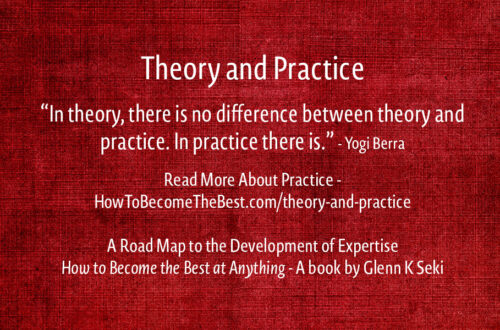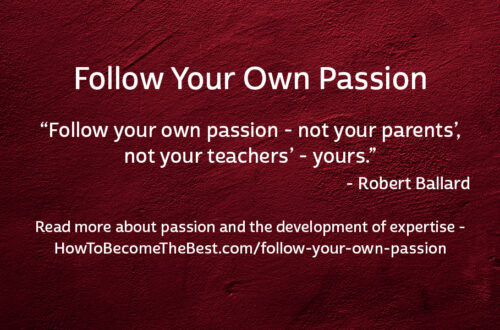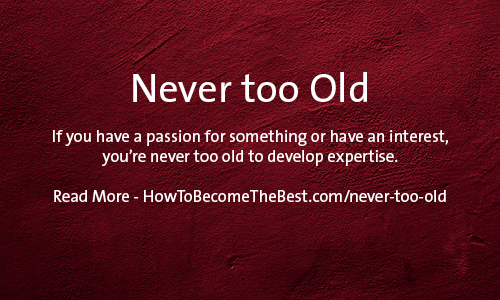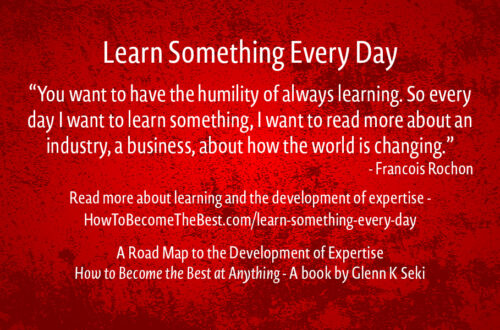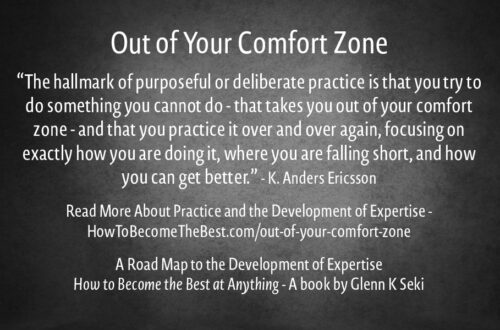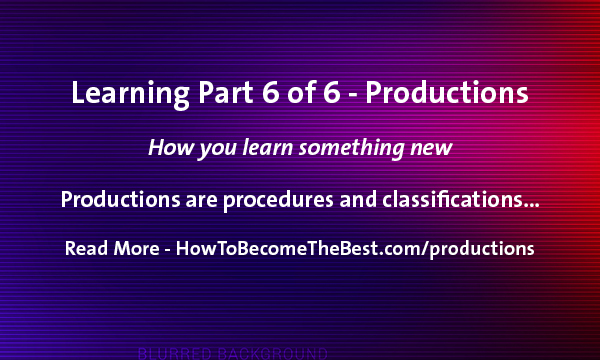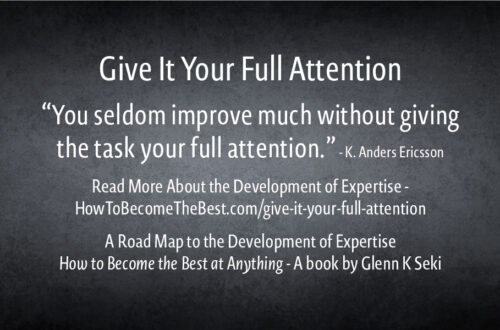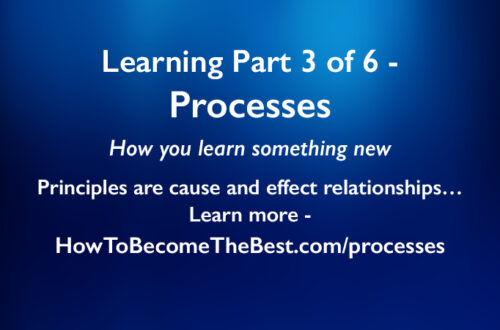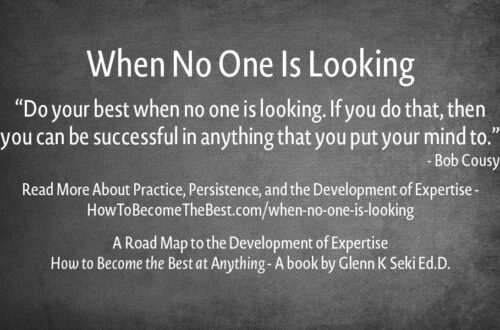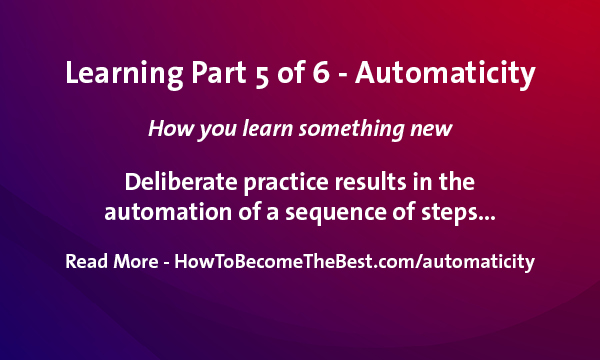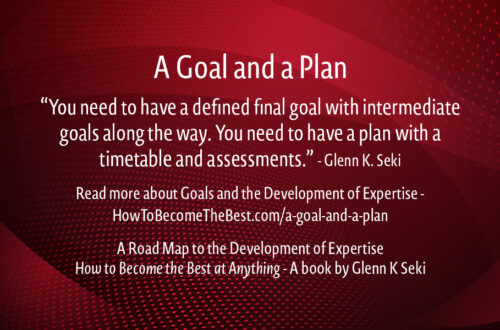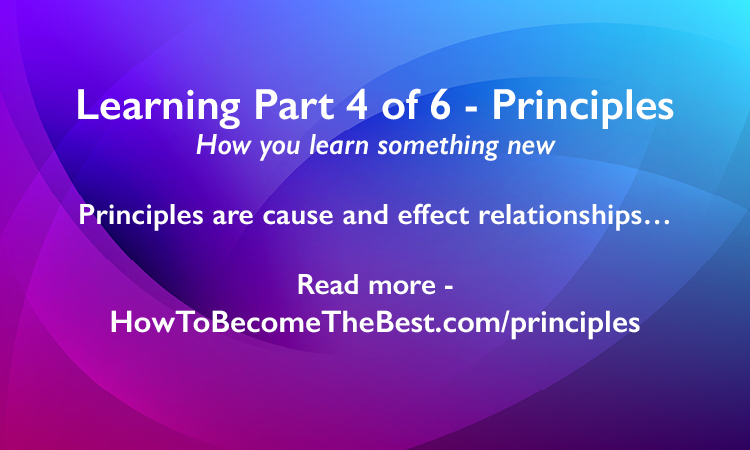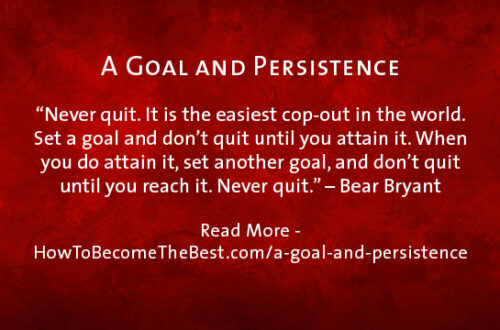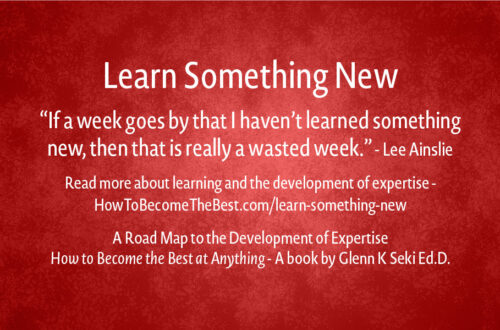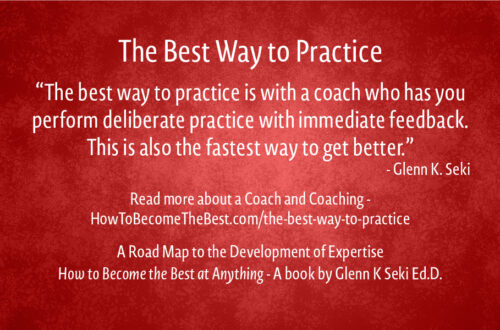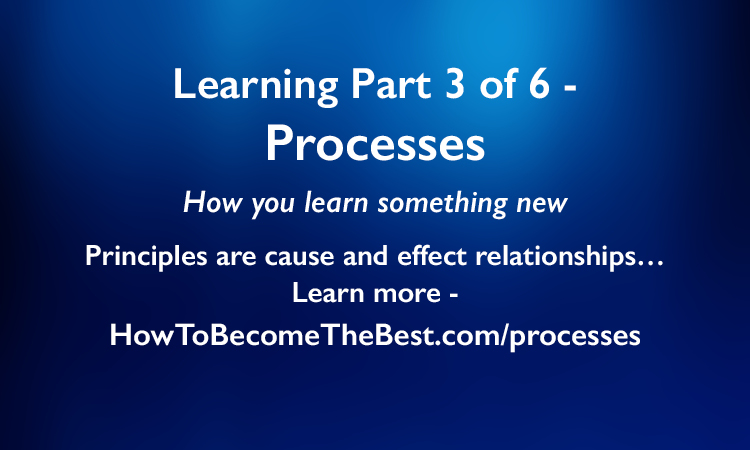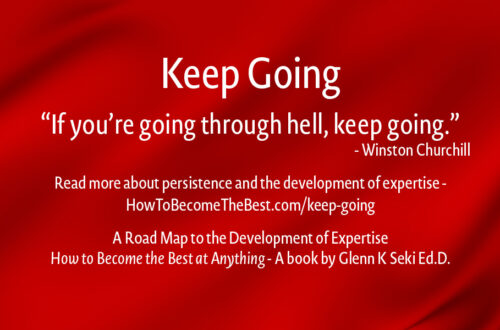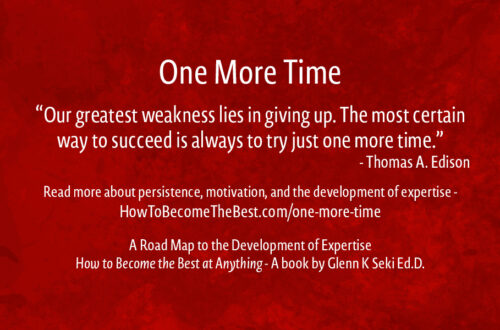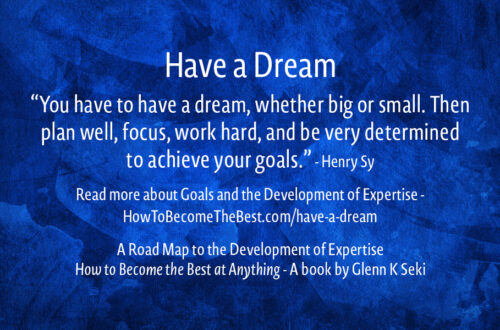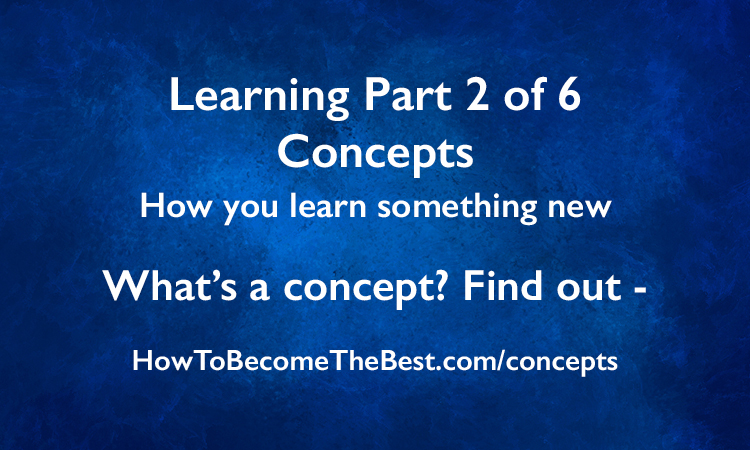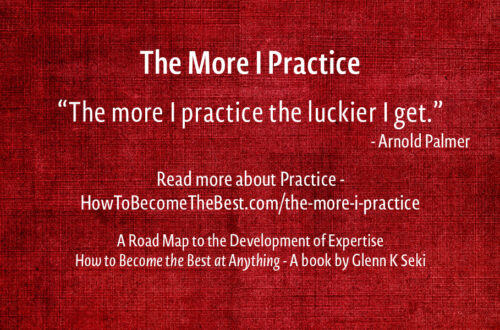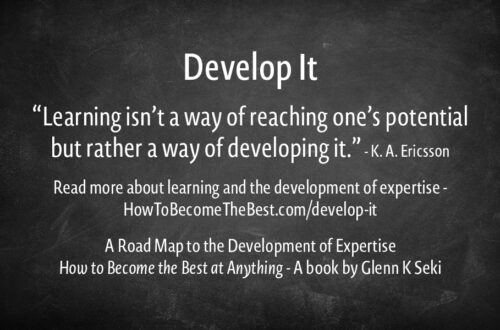An Outline What you need to become really good at something or become the best. From How to Become the Best at Anything by Glenn K Seki. Passion and Interest If you have an interest in something, it can grow into something more than an interest. It may grow into a passion as you pursue your interest. Usually an interest is just that, an interest, it will help motivate you to achieve in that particular domain up to a point. You might become very good at your interest, although you need to be passionate about something to become the best. More – HowToBecomeTheBest.com/passion-and-interest Talent You do not necessarily need talent,…
-
-
Never too Old
If you have a passion for something or have an interest, you’re never too old to develop expertise. You may have some physical limitations, but you can work around them. Set your goals accordingly. I have arthritis in most of my joints due to my youthful pursuit of judo, boxing, and aikido from the ages of 7-17. I have a heart condition, glaucoma, and many other age-related conditions. My vision is very poor, I’m just able to pass the vision test at the DMV, however, this does not stop me from pursuing my interests and passions, it just puts limitations on them. At the age of 54 I decided that…
-
Productions
How you learn something new An excerpt from How To Become The Best at Anything. Productions are procedures and classifications. This is the biggie! This is what you are trying to do to gain high levels of expertise. You want to automate procedures and classifications, so you don’t have to consciously think about them. Going back to the example of driving a car, you don’t have to consciously think about all the little things that it takes to drive a car in traffic because you have automated a set of procedures. Going back to the chair example, you can look at something and know it is a chair without consciously…
-
Automaticity
How you learn something new An excerpt from How To Become The Best at Anything. Deliberate practice results in the automation of a sequence of steps. It is automated so you don’t have to consciously think about it while you are doing it, you just do it. Some people call this “muscle memory.” I don’t like this term since muscles have no memory. Repeat after me, “muscles have no memory.” This automated sequence of steps is in your memory, in your brain. Your brain places this automated sequence of steps into nice and neat “chunks,” so you do not have to consciously think about them. Remember when you were first…
-
Principles
Learning Part 4 of 6 – Principles How you learn something new An excerpt from How To Become The Best at Anything. Principles are cause and effect relationships. In other words, if this occurs then that happens. If that occurs then that doesn’t happen. I touch a hot pan on the stove, I burn my hand. I touch a cold pan on the stove, I don’t burn my hand. And I’m able to pick it up. When I was working as a photographer for LMU and covering a basketball game, a fast break would occur, and the players would be running towards me. I already understood the process for this…
-
Processes
Learning Part 3 of 6 – Processes How you learn something new An excerpt from How To Become The Best at Anything. A process is a “how it works sequence.” An example is how radar (radio detection and ranging) works. You have probably seen a radar device in movies and on television. Someone is looking at a screen and they are watching an airplane or missile in flight as it approaches. A magnetron generates high-frequency radio waves, which are then sent to an antenna. The antenna acts as a transmitter, sending a narrow beam of radio waves through the air. The radio waves hit the airplane and are reflected back.…
-
Concepts
Learning Part 2 of 6 – Concepts How you learn something new An excerpt from How To Become The Best at Anything. Here’s a common example of a concept: a chair. You can look at one and tell right away that it is a chair. A chair can have four legs, three legs, two legs, one leg, or no legs. A chair can have more than four legs. Your memory stores a definition and examples of chairs. You have learned the concept of a chair. To learn a new concept, you need a definition and examples of the concept. Learning a concept sounds easy, and it is. However, you can…

